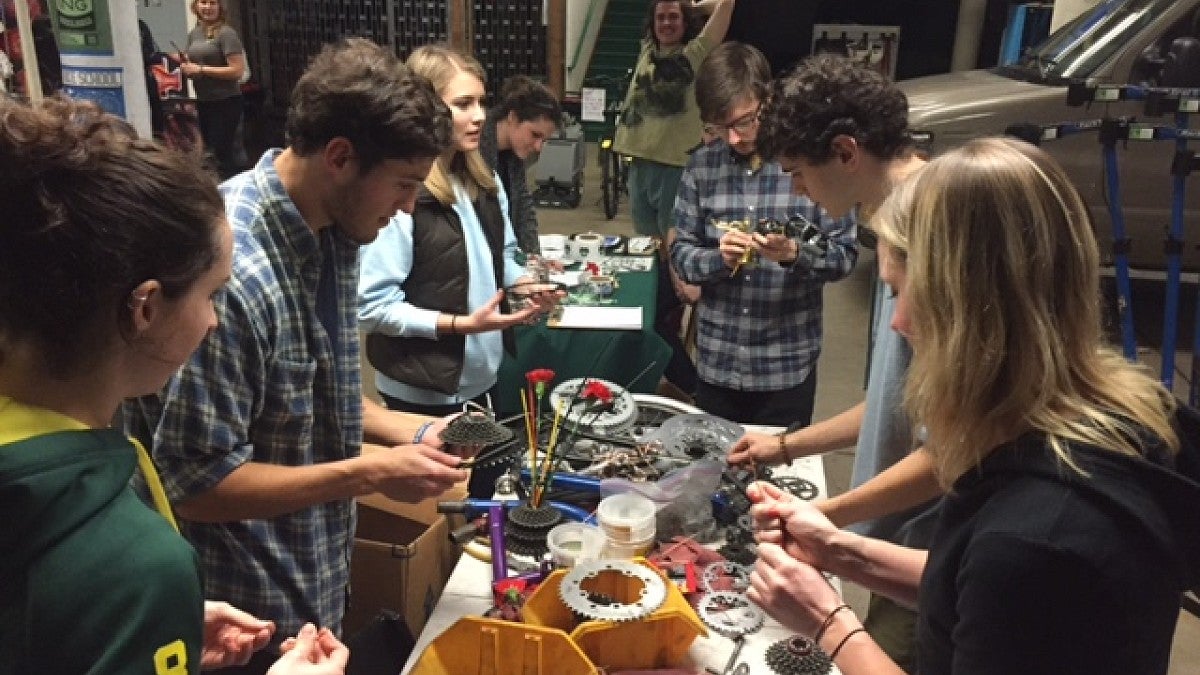The results are in for the 2015 RecycleMania Civil War, and once again the north wins.
The nationwide RecycleMania Tournament is a friendly contest between students and faculty of colleges and universities to see who can recycle the most material on a student per-capita basis. The University of Oregon is a charter member of the tournament and has been participating since 2003.
Within the national competition, however, a Civil War between the Ducks and the Oregon State Beavers has been going on since 2010.
After the eight-week competition, OSU edged out the UO to win the overall contest by just 0.10 pounds per person. The RecycleMania Civil War trophy, which has sat in UO Zero Waste Program Coordinator Robyn Hathcock’s office since last year’s victory, will be heading back to the OSU campus until the 2016 competition.
While the Civil War is just a neighborly contest, the competition’s main objective is to spread environmental awareness through recycling and composting.
“As a school that’s long been participating, we support the tournament because it’s such a useful way to engage campus through the friendly rivalry we have,” Hathcock said.
Collectively, the two universities recycled and composted a whopping 321 tons of material, with the UO contributing 161 tons and OSU contributing 160 tons. The UO also had a higher average pounds recycled per person in two components of the competition: compostables and separated paper.
Prior to the competition kickoff earlier this year, the UO Zero Waste program partnered with several community and campus groups to promote the tournament. The UO Bike Program, the Lane County Master Recycler Program, UO employees and local scrap artists led workshops for students and faculty that encouraged them to repurpose old appliances and materials.
“It’s all about reducing waste, not just recycling,” Hathcock said. “Each year, I try to do activities that promote awareness and get people thinking about the second life of materials.”
Despite the loss, the UO continues a deep commitment to environmental awareness, which has recently manifested itself in five “Zero Waste” buildings (buildings with centralized recycling and composting stations) on campus, Hathcock said. Two additional buildings, the science library and the new Erb Memorial Union, will be operating soon.
“What each one of us consumes and disposes of every day has an impact on our campus, state, country and our planet,” Hathcock said.
— By Nathaniel Brown, Public Affairs Communications intern


